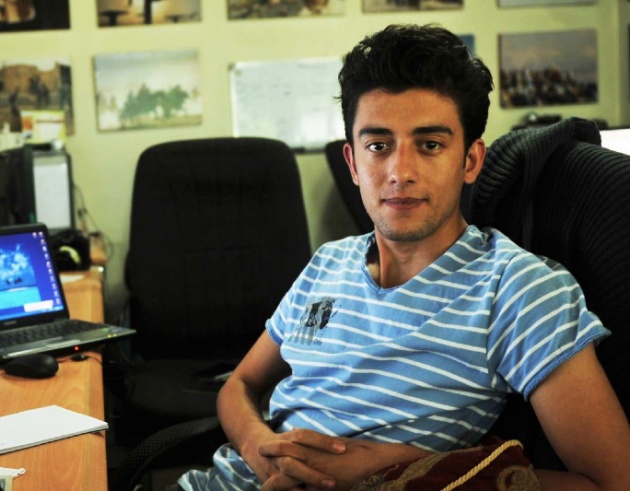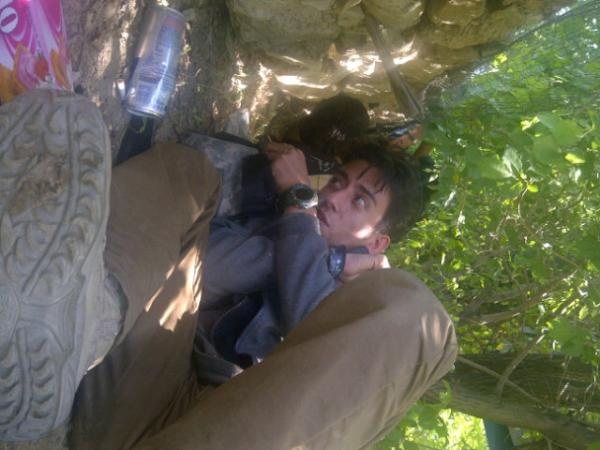" Film Annex and Women's Annex are doing a much needed work. After a period of political turmoil and civil war, the media, like every other field, shifts into a new shape and assumes a new functioning system. If not for such companies, the goal of digitalizing and transferring the media from Stone Age’s analog cassettes and tapes to an era where a media outlet without a firm presence on Twitter or Facebook or over the internet in general, will not be counted in such a fast-going revolution."
Mustafa Kazemi is an Independent War Correspondent based in Afghanistan. He contributed with Mashable and he is known for his live tweets during Taliban attacks and firefights.

FA: Can you briefly tell us about yourself and your background?
MK: I was born in Kabul. My father was exiled to another province after he declined to enlist in the military as a combat doctor. I went to school in 3 provinces and learned English during the Taliban regime. I did my bachelor’s degree from India in English literature and journalism. I worked for a long time with the United Nations and the NATO and ultimately I served with the Afghan Army Special Forces. Currently am a war correspondent covering the war & political turmoil in Afghanistan & neighboring countries.
FA: What type of stories do you mainly cover? Why?
MK: My coverage concentration is mainly on military and political events and happenstances occurring in Afghanistan. I cover everything from a landmine explosion to naming the NATO soldiers dying in counterinsurgency operations across Afghanistan. As a former soldier & current journalist, it is to the best of my skills to cover the war; plus there aren’t much journalists who would concentrate on this specific field.

FA: The media is undergoing drastic changes because of the opportunities for independent journalists to write blogs and update stories online. What do you think about these phenomena? Can it change journalism in Afghanistan?
MK: It certainly can. Media in Afghanistan is being born in a new shape and form after the nearly four decades of civil war. Afghan journalists & media outlets have clearly understood the fact that they should stay on track with the global trends in media and journalism – and they have attained this goal almost completely. Besides, I can safely state that Afghanistan has a very supportive government in terms of freedom of speech. This, along with the new changes that the media are embracing, will render Afghanistan’s journalism and media field as one of the most successful and thus, very reliable in close future.
FA: You are contributing to many International publications, which broadcast live news from Afghanistan. How do you see Afghan journalists' contribution to foreign publications?
MK: They have a notable amount of contribution to those foreign publications. In fact if they withhold their support and contribution, the media outlets outside Afghanistan will face a great deal of trouble in covering Afghanistan’s news. There are many Afghan journalists who have become very reliable source of news for such publications. We even have journalists who cover the entire country’s news only by themselves for a news wire without aid of extra staff, which proves that their contribution is very important.
FA: What do you think about companies like Film Annex that are promoting digital literacy in developing countries like Afghanistan?
MK: They are doing a much needed work. After a period of political turmoil and civil war, the media, like every other field, shifts into a new shape and assumes a new functioning system. If not for such companies, the goal of digitalizing and transferring the media from Stone Age’s analog cassettes and tapes to an era where a media outlet without a firm presence on Twitter or Facebook or over the internet in general, will not be counted in such a fast-going revolution.
Recently he has joined Film Annex. Subscribe to Mustafa Kazemi for more updates.
Subscribe to my blogs and Women's Annex so you don't miss the next articles.



